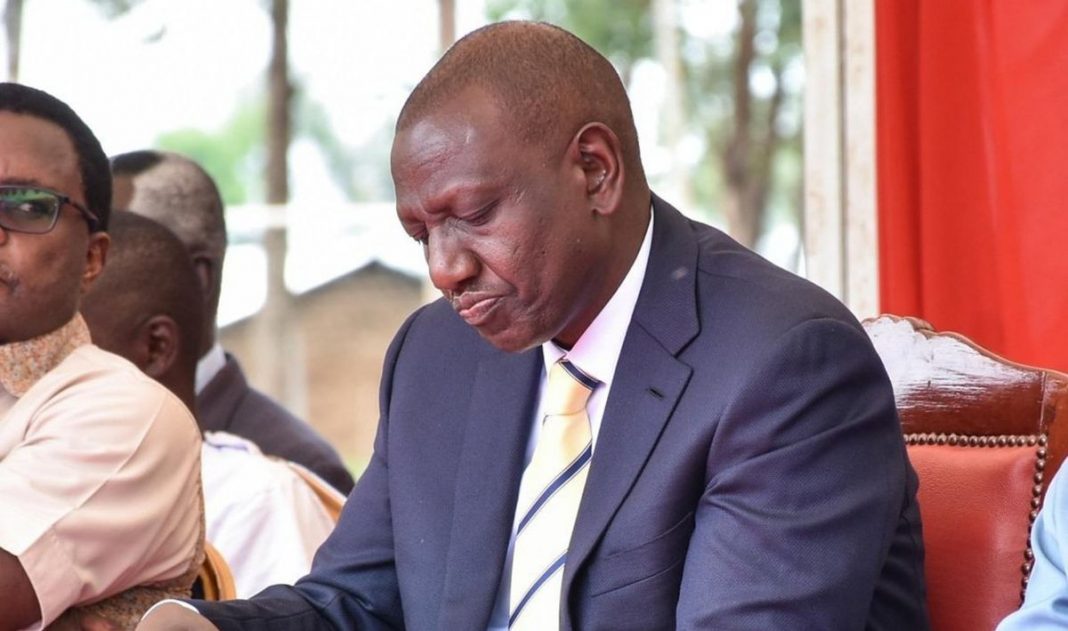By Nabendeh S.P Wamoto
The Kenyan President Uhuru Kenyatta and his deputy Dr. William Ruto debacle is a climax of what is known to be politics of betrayal not only in Kenya but in all Africa where irreconcilable political differences and rebellions are the order of the day and because of for example of the aforementioned situation militarism has become a lucrative industry in the third world nations and a very profitable investment.
I have taken time again to review president Yoweri Kaguta Tibuhaburwa Museveni’s biography “SOWING THE MUSTARD SEED” and Kenya’s Joe Khamis’ “POLITICS OF BETRAYAL”. It took Museveni sixteen years to write the story of his own personal role “In the struggle for freedom and democracy in Uganda over the past 30 years”, Then Museveni believed that it is him alone and his colleagues who could sow the mustard seed of freedom and democracy in Uganda in the 1970s – 1980s after first cleaning the land of the rocks and weeds of a CORRUPT systems of Idd Amin and Milton Obote. Museveni for example writes as school boys in western Uganda between 1965 and 1966, he and his friends Eriya Kategaya, Valeviano Rwaheru, Martin Mwesiga and Mwesigwa Black were “staunchly anti-Obote” (P19) and that he himself hated Obote at the time because the latter frustrated the East African Federation idea against the support of Mwalimu Nyerere (RIP) and Mzee Kenyatta (RIP) (P18).
I would recommend that each and every East African reads the two books MUSTARD SEED and POLITICS OF BETRAYAL concurrently. In his book President Museveni gives no credit to Uganda’s nationalism in the attainment of the country’s political independence and doubts whether there was any Ugandan nationalism before him and views the situation as if all was darkness in Uganda until God willed that let there be Yoweri Museveni and then suddenly all was light in Uganda. Museveni accuses Obote of being unscrupulous and cites the way in which Obote misled the traditionalists in Buganda and there after reneged over the same issues (P19). The tone in the book is self satisfaction and self congratulation regardless of his close comrades most of them from Bugisu and south-western Uganda. He personally sounds hostile on everybody else. President Museveni seems to have had low opinion of practically all his lecturers at the University of Dar-es-salaam, condemns then DP leaders as lacking a dynamic leadership, conservative men/women with limited perspective, and then UPC leadership were generally an uncouth breed who were anxious to get rich as quickly as possible using State apparatus. (P45) and that Y.K. Like was averse to democracy which is almost the same today.
For example the support that NRM enjoys from private business men/women is a blessing in disguise. Ironically, the relationship between the State and business entities creates glamour for paybacks through illegal tenders, tax evasion tendencies and the shadow NRM local politicians enjoy and are not ready to overhaul the present status quo. The mustard seed is also a record of Museveni’s ideological development from youth to the present. The author (Museveni) admits that he was possessed since his college days at Dar-es- salaam, WITH THE CONTROL OF THE ARMY as a solution to political and economic power. He however reserves much of the venom for Obote who NRM demonized throughout the book as the major cause of all problems of Uganda since independence. The book also condemns the establishment of a working relationship between the UPC and Kabaka Yekka saying the alliance was opportunistic and sectarian but he doesn’t tell the readers what could have been done given the independent constitution which attempted to marry a monarchical and authoritarian regime with then a parliamentary system and characterizes the period 1962-1971 as a time of intrigues and corruption, with no meaningful development. According to author Museveni, by the end of Amin’s rule in 1979 about 500,000 Ugandans had died many of them Acholi and Langi (P45) and says that this is the “high price Uganda paid for a corrupt, mismanaged and sectarian army” (P41).
Closely looking at the evidence presented in President’s book, it is obvious that Museveni sees himself as the Earnest ‘Che’ Guevara ( legendary South American guerilla leader) and gives details of war strategies, plans and battle tactics ending up with a kind of guerilla WORKBOOK/manual which he expected other progressive African leaders to adopt in order to “Sow the Mustard seed” in their countries. The Mustard seed has already found its way in the neighborhood considering good students like Gen. Paul Kagame in Rwanda, the late Laurent Desire Kabila of the Democratic Republic of Congo who applied the war scriptures of this manual in their countries. Kagame was of course an officer in the National Resistance Army (now UPDF) of Uganda and many of Kabila’s Tutsi tribe operating in the Congo are actually Ugandans of Rwandese origin who have been through this training workbook of war. The current conflicts in Uganda about which the Mustard Seed author had pontificated at length in this war manual could be ignited by new nationalist ideologies such as Dr. William Arap Ruto of Kenya hence the current political empathy.
At the moment only one side of the story is being heard yet the question is to what extent has the autograph (manual) contributed to the present military upheavals in the East African Community region?
Freud once said “The smaller the difference between two people, the larger it was bound to loom in their imaginations”. This effect, which he called the narcissism of minor difference, is especially visible in Region today.
Nabendeh S.P Wamoto (+256776658433)
simonwamoto@yahoo.co.uk








